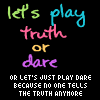Many people warn of the possible harmful effects of using technology in the classroom. Will children lose their ability to relate to other human beings? Will they become dependent on technology to learn? Will they find inappropriate materials? The same was probably said with the invention of the printing press, radio, and television. All of these can be used inappropriately, but all of them have given humanity unbounded access to information which can be turned into knowledge. Appropriately used-- interactively and with guidance-- they have become tools for the development of higher order thinking skills.
Inappropriately used in the classroom, technology can be used to perpetuate old models of teaching and learning. Students can be "plugged into computers" to do drill and practice that is not so different from workbooks. Teachers can use multimedia technology to give more colorful, stimulating lectures. Both of these have their place, but such use does not begin to tap the power of these new tools.
In this area, you will find descriptions of how computers can be used to stimulate and develop writing skills, collaborate with peers in foreign countries, do authentic kinds of research that is valuable to the adult world, and do complex kinds of problem solving that would otherwise be impossible.
Articles
Technology and Academic Achievement Les Foltos
New research provides substantial evidence connecting the use of technology to academic achievement.
Americans Need to Know More About Technology The National Academy of Engineering
A 2002 report.
Take Back the Afternoon: Preserving the Landscape of Childhood In Spite of Computers David Sobel
The Director of Teacher Certification Programs at Antioch New England and Co-Director of the Center for Place-Based Education describes the importance of hands-on learning and creative activities in helping children develop their fullest capacities.
Classroom Applications:
Implications of New Media for K-12 Education Chris Dede
Virtual Reality researcher Chris Dede's testimony to Congress on the implications of introducing new technologies in the classroom. Link to an outline of important themes and policy issues surrounding the use of information technology to support innovative models of teaching and learning.
Nanoscale Science and Technology: Connections with K-12 Education Ethan Allen
UW professor and researcher considers the implications of nanoscale science and technology for K-12 education.
The Web of Knowledge: Vision, Design, and Practice Patrick McKercher, Judy Bonne and Andy Rogers
A description of James Burke's Knowledge Web project and its application in the classroom.
Intercultural Education and Virtual Reality Judy Bonne and Patrick McKercher
Judy Bonne Kane, the Director of Curriculum and Instruction for the Crawford AuSable Schools and Educational Project Director for the K-Web, and Patrick McKercher, K-Web project manager, give us an update on this project developed by James Burke.
Advancement of Science Knowledge In Language Learning ( ASKILL ) John Shaffer and V. A. Lindley-Brunn
Two educational researchers discuss a project that focuses on enhancing English language acquisition at the middle school level by English Language Learners through the study of science.
Learning with the Internet S. L. Muthukumar
A Singaporean researcher shares how to effectively use technology as a positive student learning experience.
Changing the Face of Education in Missouri Monica Beglau
A statewide education program that focuses on the use of technology in the classroom.
Generation Y: Student Inclusion = Technology Infusion Sylvia Martinez
A curriculum model that combines project based learning for students with professional development for teachers.
Technology and MI Thomas Hoerr
How technology can be used to implement the Multiple Intelligences theory in the classroom.
Linking Students with Their World: A Good Day in French Class Nancy A. Bacon
One practical and successful application of special technology in the classroom.
Technology in Environmental Education Clancy J. Wolf
How technology not only enhances learning but also helps students to explore and understand the world around them.
Listen Up!: Using Audio Files in the Curriculum Tuiren Bratina, Tom Bratina and Anthony Bratina
How to add audio files to online course content.
A New Generation Meets the Ancient Mariner Raúl daSilva
Literature can come alive for students as a sensory experience by using new technologies. The text remains intact, but these technological enhancements can provide a context which connects the work to music, art, history and more.
Harnessing the Best of Technology for an Exceptional Information Literacy Library Program Deborah Gallaher and Sue Roberts
A library program that combines student research, technology and learning to think critically.
Working Together: Students with Disabilities and Computer Technology Sheryl Burgstahler, Ph.D.
Special needs students can particularly benefit from the use of new technology.
What's ONADIME? Bruce Mitchell
Onadime Composer is a software tool kit for making multi-media, multi-sensory real time interactive computer programs for teaching, learning and entertainment.
The Internet:
Questions for Potential Online Instructors Nancy Prince-Cohen
Online educator addresses some pedagogical, sociological, and psychological issues educators need to examine before they begin to create an online course.
Lessons on Teaching Writing from Website Design Jennifer C. Stone
University of Washington Professor showcases ways that students can transfer skills used to build a website to the writing process.
Clickers, Be Aware! Cheryl Edwards and Lydia McCardle
Through their experiences teaching a senior-level methods class and supervising student teachers, two teacher educators found that teacher candidates are increasingly looking to the Internet for help with lesson planning. However, many lack discretion in selecting effective lesson plans from the proliferation of websites. This article points out the importance of raising candidates' awareness of pitfalls and informing them of ways to identify reliable websites and effective lesson plans.
Mr. Coulter's Internet Tendency: to Infinity and Beyond Brad Coulter
Veteran elementary school teacher uses online publishing to motivate young writers.
Instant Messaging: Friend or Foe of Student Writing? Amanda O'Connor
Graduate student in Educational Technology discusses the impact of "internet speak" on student writing.
Chaim Potok's My Name is Asher Lev, Art History and Images From the World Wide Web
Alan Warhaftig
Including art history creates a richer, more powerful lesson.
The Learning Space: A Unique Online Community of Teachers Bretta Beveridge
A grassroots organization uniting teachers on the internet.
Releasing the Isolated Warrior Marlene A. K. Goss, Ph.D.
What teachers need in order to make use of new technologies in the classroom.
e-Quality Dr. Miriam Masullo and Dr. Antonio Ruiz
When the internet was born, educational leaders had high hopes that access to information would make education better for everyone, everywhere in the world. Now, in the year 2000, we see that these hopes have been dashed. Too few have access to the technologies. Schools do not have the equipment necessary to make use of the information superhighway, many do not even have access to telephones, much less the internet. Dr. Masullo and Dr. Ruiz propose a new way to renew the promise of equity access to education.
People Are the Only Thing that Matter Dr. Miriam Masullo and Dr. Antonio Ruiz
According to our Department of Education, in the US only 14% of poor and minority classrooms are wired. Thus, even for developed countries, diminished resources, lack of educators, and safety in the schools are higher priority issues than figuring out how to make the Internet and the Web new vehicles for improved learning.
The Future of Learning in a New Free World and how to Build a World Wide Learning Web Gordon Dryden
New Zealand author of the New Learning Revolution notes that millions of teachers and billions of students continue to work mainly in isolation, yet in today's world of instant communication, collaboration is essential in order to make the most effective changes.
Americans All: Searching for Sponsors for a History and Civics Data Base System Allen S. Kullen
In this essay, Kullen calls for sponsors to support Americans All, a program that will serve as the national operating entity to gather, organize, distribute and maintain electronic databases that will support how individual states teach and test history and civics at various grade levels. These inclusive databases will comprise the complete political, social and cultural history of the nation, organized by state and grade level.
The Guilds: A New Curriculum for Education and Internet Reform George Gorman
Could the internet become the forum for a lifelong learning program for all?
Virtual and Augmented Reality:
Virtual Reality In Education John Shaffer
A science teacher shares ideas on virtual reality and how it could potentially enhance a multiple intelligences teaching strategy.
Learning Through Virtual Reality Bill Winn
How virtual reality can help students learn and what kinds of virtual reality models are available now to be used in the classroom.
Augmented Reality in Education Mark Billinghurst
A pioneer in the field of AR explains its practical uses.
Augmented Reality and Education: Current Projects and the Potential for Classroom Learning Brett E. Shelton
More on the future of augmented reality.
Multimedia:
Multimedia Technology and Children's Development Dee Dickinson
Implications of the technology revolution.
Technology As the Catalyst Linda A. Tsantis, Ph.D.
The author suggests that multimedia technology (a marriage of technology and the arts) can be utilized in ways that enhance the unique characteristics of each learner.
Learning by Design: Integrating Technology into the Curriculum Through Student Multimedia Design Projects Ted M. Kahn, Ph.D. and Linda K. Taber Ullah, M. Ed.
In order for technology to be effective in today's education system, it needs to be intelligently integrated into a rich, meaning-centered curriculum.
Multimedia Encourages New Learning Styles David Thornburg, Ph.D.
Modern technological tools let us work with information in ways that honor the unique learning modalities of each student.
Beyond the classroom:
Using New Educational Technologies to Empower Youth: The Power of Youth-Adult Partnerships in e-Learning Gary Goldman and Barbara L. McCombs
Tapping the resource of young peoples' technological skills can benefit the whole community.
Inventing Workshops: Hands on Technology Ed Sobey
Project based learning outside the classroom.
Washington Aerospace Scholars Program Bonnie J. Dunbar
The Museum of Flight in Seattle and Washington Governor Christine Gregoire announce a pioneering new aerospace program to foster student interest in math and science.
Giant Campus: Experience Based Technology Learning Maura Whalen
Teaching young people to use technology benefits students at every point of the achievement spectrum.
Technology Access Foundation (TAF) Trish Millines Dziko
This foundation brings free computer and technology access to those who have been traditionally underrepresented in the field of technology.
WildTech Learning Eric Christianson
What can happen when a school gets involved with the Wilderness Technology Alliance? A win-win situation results for school, students and community.
Learning to Do: Students Develop IT Projects that Deliver Service
In British Columbia, Canada, students in grades 10-12 in an Information Technology Management (ITM) course take a project-driven approach to studying information technology. Students learn to manage technology and in the process about taking responsibility for getting the job done. The teacher-student collaboration is empowering for both.
A Call to Action: A Global Youth Empowerment Society (YES) Gary Goldman and Allen Schmieder
The authors call for young persons in America to make significant contributions to their community, thereby energizing their lives and spearheading the revitalization of schools and neighborhoods.
Campaign Against American E-Partheid Timothy Jenkins
Timothy Jenkins believes there is a need for radically different educational interventions, and a redirecting of education dollars from anti-crime and drug prevention programs to positive skill-building and access opportunities for all children.
Thursday, June 07, 2007
Technology in Education
Subscribe to:
Post Comments (Atom)






0 comments:
Post a Comment